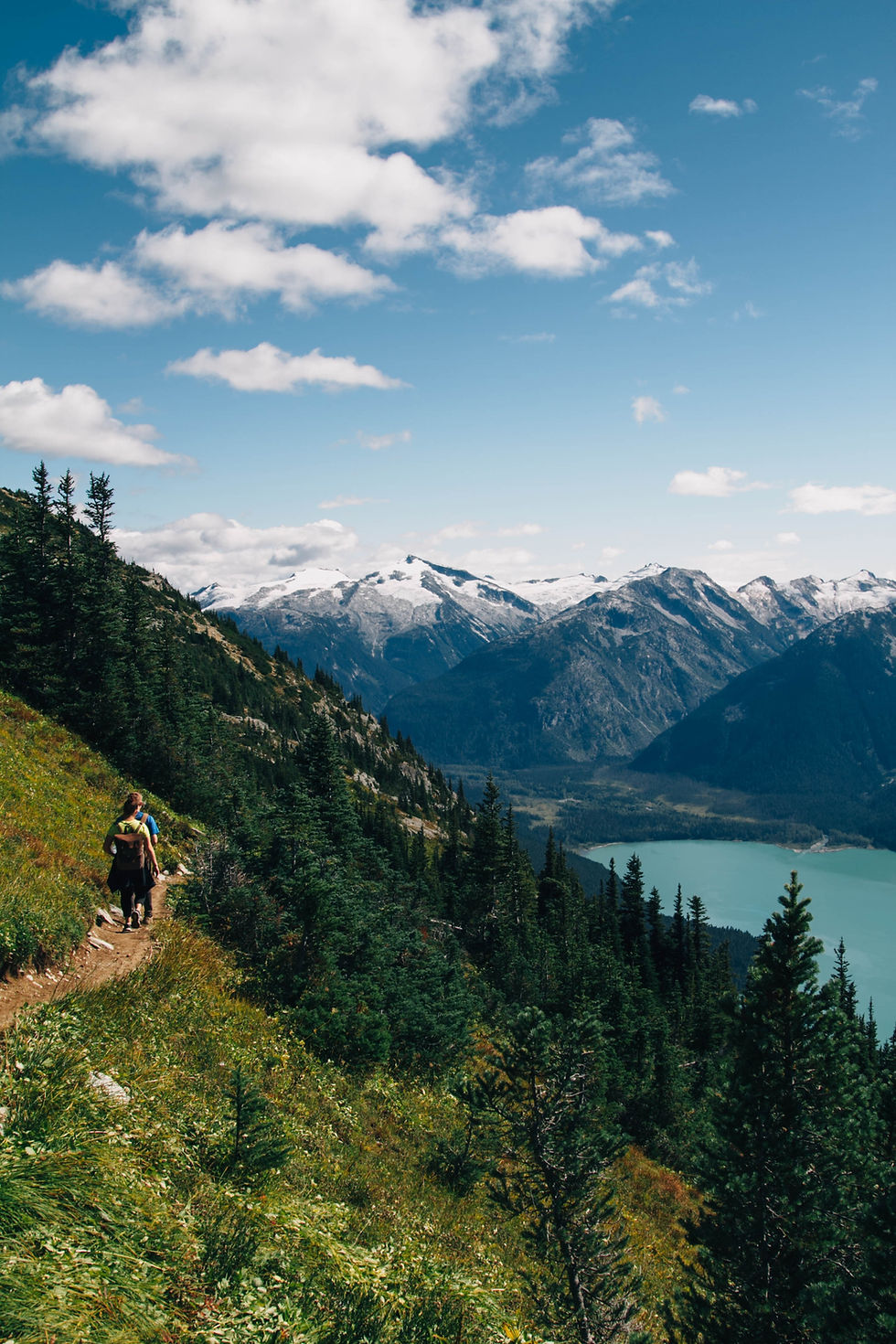Off Season - What, How, When And Why. Do I really need to take one?
- Nov 12, 2018
- 6 min read
Updated: Dec 2, 2020
For pro racers, off season is here and that means time off, time for vacation or time for activities that they can’t really do during race season. But even regular cyclists can get huge benefit from taking an off season break. Rest and recovery allow for a mental refocus, a physical recovery and a spiritual re boost.

Five pillars of the off season:
CYCLING REST: Your recovery period should last from two to four weeks. By the end of this period you should feel mentally and physically refreshed, and any lingering fatigue or soreness (which is very common) should be long gone before you move on to the next phase of base building.
STAY ACTIVE: You can and should continue to remain active during the recovery phase. Just remember that all of your activities should be low intensity. This is also a great time to get involved in other activities that you may not have had time for – go for a run or walk, tennis, gym classes or other fun activities that will help you recover, both mentally and physically.
TRY NEW DISCIPLINES: The great news about the recovery stage is that it is all about fun – I would highly recommend riding a gravel or BMX or perhaps practising your bike handling skills. Alternatively, try a whole different style of riding altogether. Who knows, it may be your new calling…
QUALITY TIME: If you’re in a full time job and/ or got a family, it can be stressful trying to keep cycling consistent throughout the year. Use the recovery period to invest in your career and family for that much needed mental boost, and extra support down the line.
PLANNING: During this break, spend the extra time to plan your next season of cycling by researching, entering events and setting yourself some training goals.

There are some things you should and shouldn’t do during off season. Even though it sounds like an easy time, off season is an important time. Believe it or not, things you do during the off season have a big influence on your next race season. Spending your time on the couch for a whole month isn’t the right thing to do and neither is riding or working out like crazy.
I have had to learn it the hard way- I admit that. I’ve made mistakes during my past off seasons. Mainly because I can’t sit still and just like to be active. Resting can be hard too!

Do’s and Don’ts
Your last race of the season might be in the books but keep riding! Low intensity rides or coffee rides will keep the body in activity mode before a real break and time off the bike.
-Then, take a real break of around two weeks. After a long race season, it is important to rest your body and mind.
-It depends on when your first race will be in the new season, but your structured training should start about 1-2 months prior to race day.
-The idea is to build up your fitness for next season step by step. Your coach should be able to provide you with a good plan that fits your needs and help you to prepare for next season. If you don’t have a coach, now is a good time to start looking.
-Next to riding your bike, this plan should also include strength and cross training. Incorporate crossfit, running or hiking or skiing or anything else that you may enjoy doing and that complements cycling. This is essential as it builds up full body strength that you may have lost during race season. Next to improving your fitness, it will also challenge your mobility and balance and helps to prevent injury.
-Off season is the perfect time to work on your weaknesses. Reflect on the past season and identify your weaknesses. Talk to your coach, if you have one.
-Work on your bike handling and riding skills. This can be very simple: just go to an empty parking lot and set up some cones or water bottles. Work on skills like picking up water bottles, cornering, track stands, bunny hopping, riding figure 8’s, taking off jackets or arm warmers, riding no-handed, 180 turns, the list goes on. Being able to master these skills will make you feel more comfortable on your bike and make you a better bike rider.
-If you have to adjust things, like your bike position for example, use the off season to do it. The same counts for getting used to new shoes, new cleats, pedal systems, saddles, etc. It is never a good idea to dial in or change important equipment once race season has started.
-Try to avoid weight gain in the off season. It is OK to enjoy some goodies but don’t overdo it. Being a little bit heavier during winter is no problem as long as you can lose it come spring time.
-Analyse your past race season and set goals for the next season. Sit down and reflect on the past season, what went well, what went wrong and where can you improve or work on. Set your goals for next season and write them down.

Here are some great activities we like to do during off season.
Hit the roads
This one might be unpopular, but finding time to hit the roads on a road bike is a great way of improving your fitness for the upcoming race season. Road riding for longer periods of time at a brisk but maintainable pace (think heavy breathing but you’re still able to string full sentences together) helps to build your base fitness. And, as we all know, successful race seasons are usually built on a solid base of fitness. Not everyone is lucky enough to live within riding distance of mountain bike trails, so a quick road ride can be a godsend on a day when you either haven’t got time to drive to the trails or can’t deal with the inevitable clean up after a muddy ride. Either way, road riding isn’t to be sniffed at and could make a real difference when the proper racing begins.

Strength training
Mountain biking can be tough on your body and many riders pick up niggling injuries throughout the year, which never seem to quite go away. Once you’ve fully recovered from the previous season, the offseason is a great time to concentrate on some serious strength training, which will help with injury prevention come race season.

Yoga
Lots of mountain biking makes you very good at one specific thing and one specific plane of movement, meaning we often end up neglecting the rest of our body and how it’s meant to move. Shoulders, hamstrings and hip-flexors can become tight and this may lead to injury or poor performance off the bike.
During the offseason, Yoga is a fun way to work on loosening the parts of your body that become tight and strengthening the bits that become weak. Most cities and towns have plenty of classes to choose from. As they usually last an hour, it means they’re a great pre or post work option during the winter months.
If you want to work-out at home, find a suitable yoga program, a quiet area and enjoy the quiet time.

Swimming
As long as you have relatively easy access to a pool, swimming is a fantastic way to keep in shape . For one thing it’s not weather or time dependent, with pools usually opening early and closing late. This means you can usually find time for a swim around a busy work schedule.
It’s also a non-weight bearing activity, making it a good option for riders recovering or living with old injuries.
Finally, hours spent hunched over on a mountain bike during race season can make you muscles and tendons tight, so the reaching and stretching you during a swim session can contribute towards loosening off all those tight and tricky areas.

Running
Running is the obvious cross-training counterpart to cycling, and it’s a great way to boost aerobic fitness in a limited amount of time. A 30-minute run can provide the same aerobic benefits as an hour on the bike — and it’ll be much easier to stay warm and be safe in extreme weather. You’ll also need very little gear other than a good pair of running shoes. Also some weight bearing exercise greatly benefits cyclist who do not get this type of exercise, especially women.

Hiking
Hiking can be very challenging, depending on how you approach it. It also helps build strength in muscle groups commonly neglected by cycling, such as the hips and core. From a mental perspective, hitting the trail can be similar to mountain biking and a nice change of scenery from the road. It will allow you to forget about power metrics for a few hours and conquer a new kind of challenge.

Enjoy your off season!
.png)



Comments